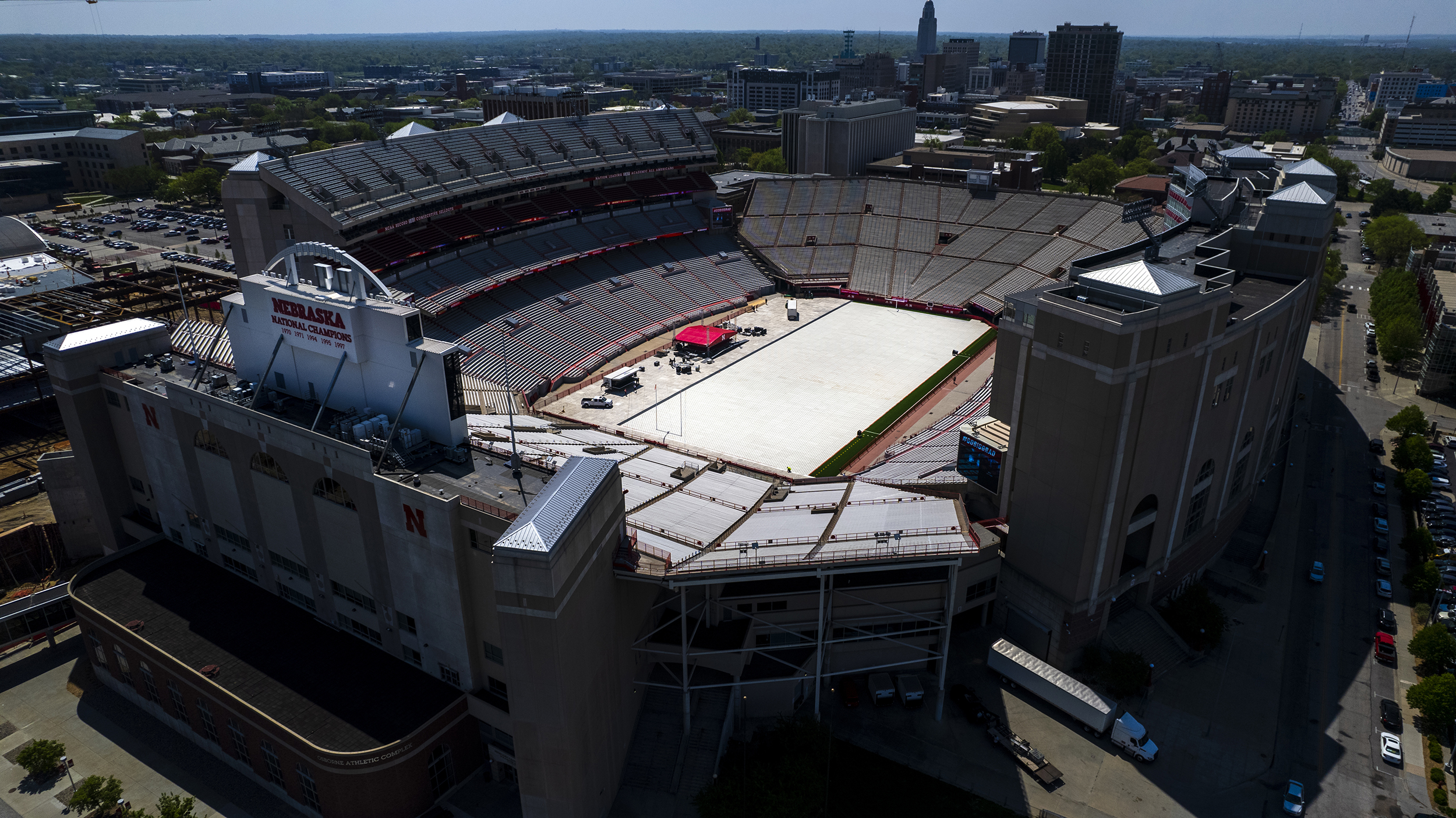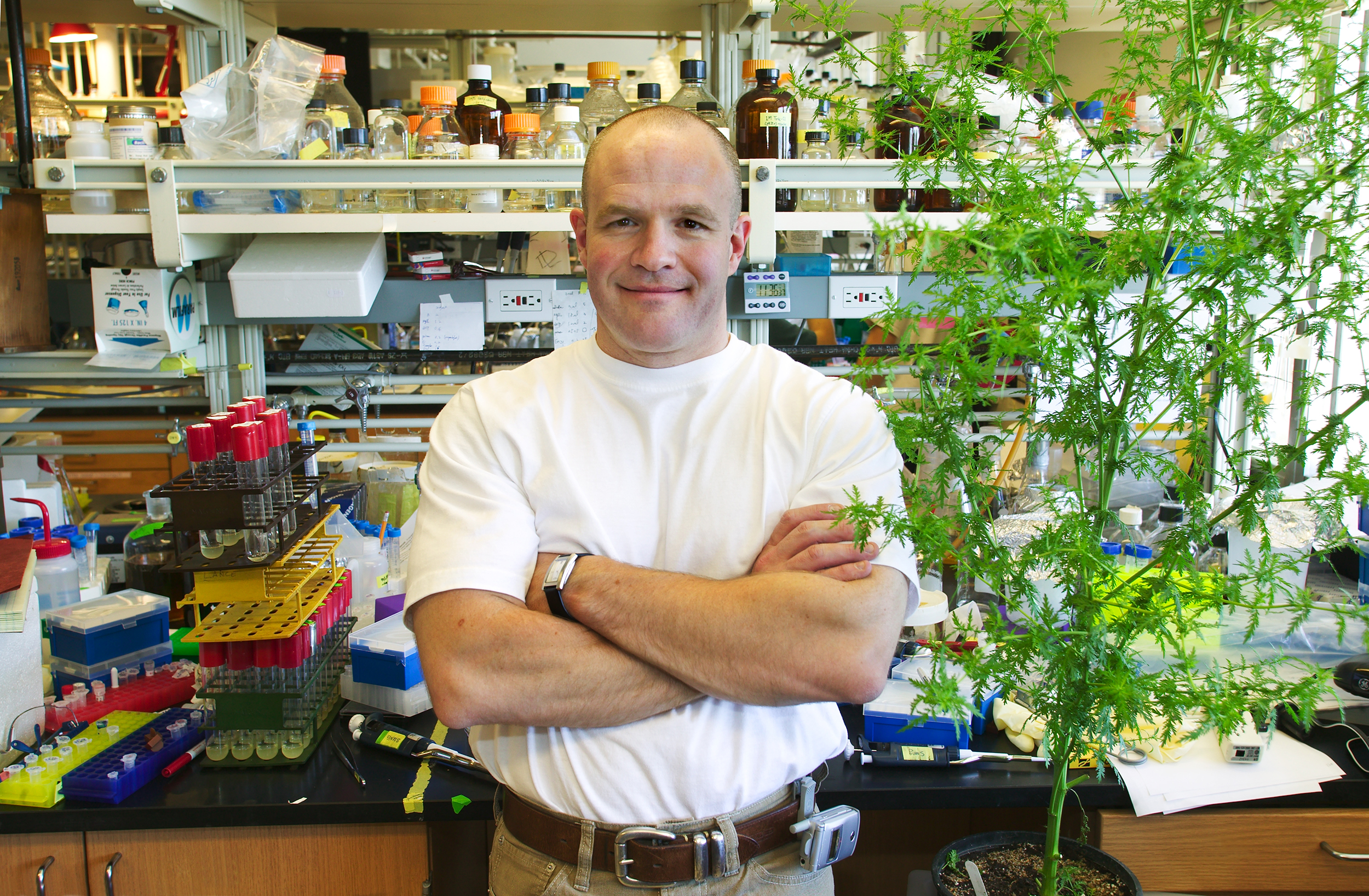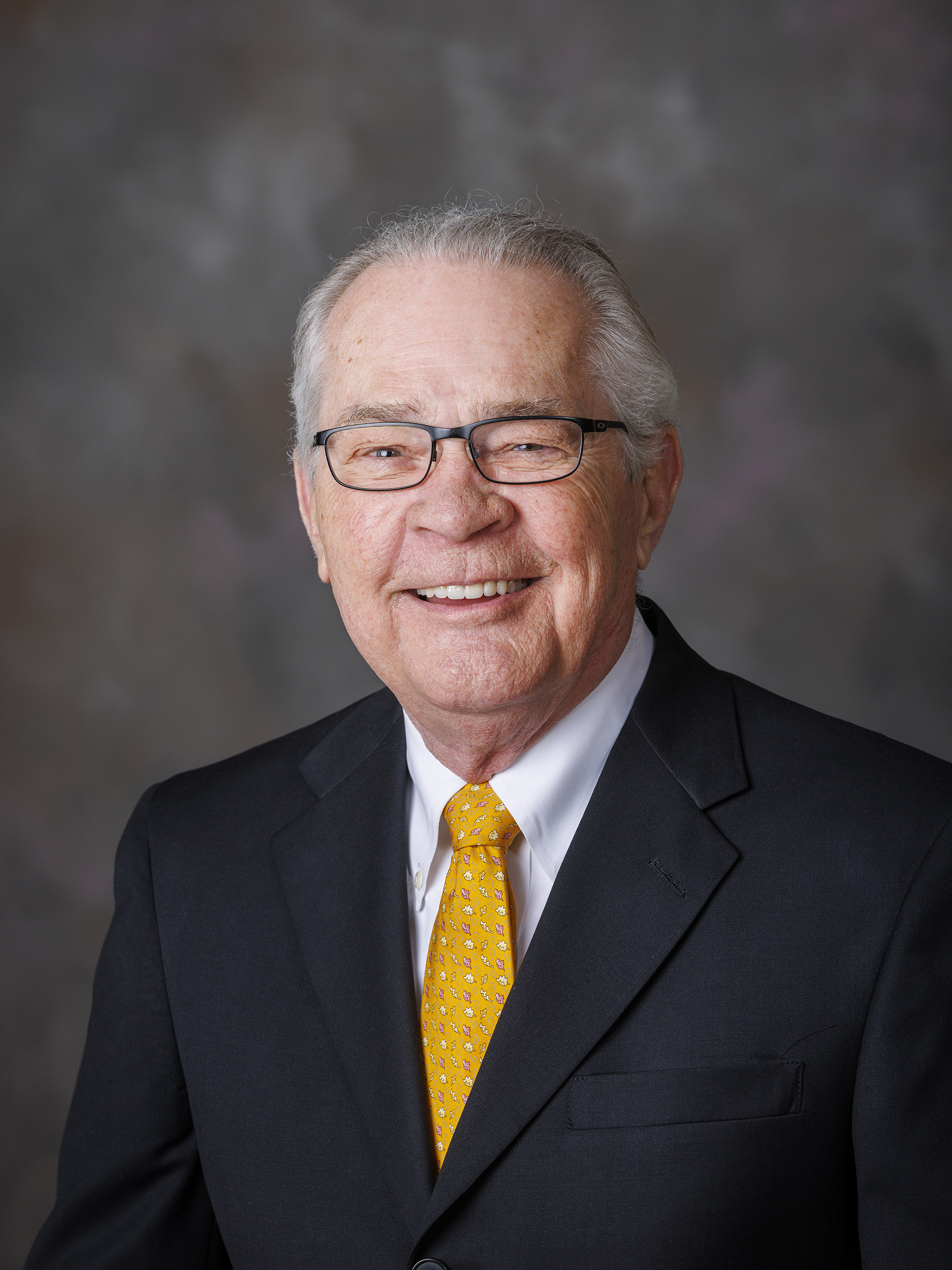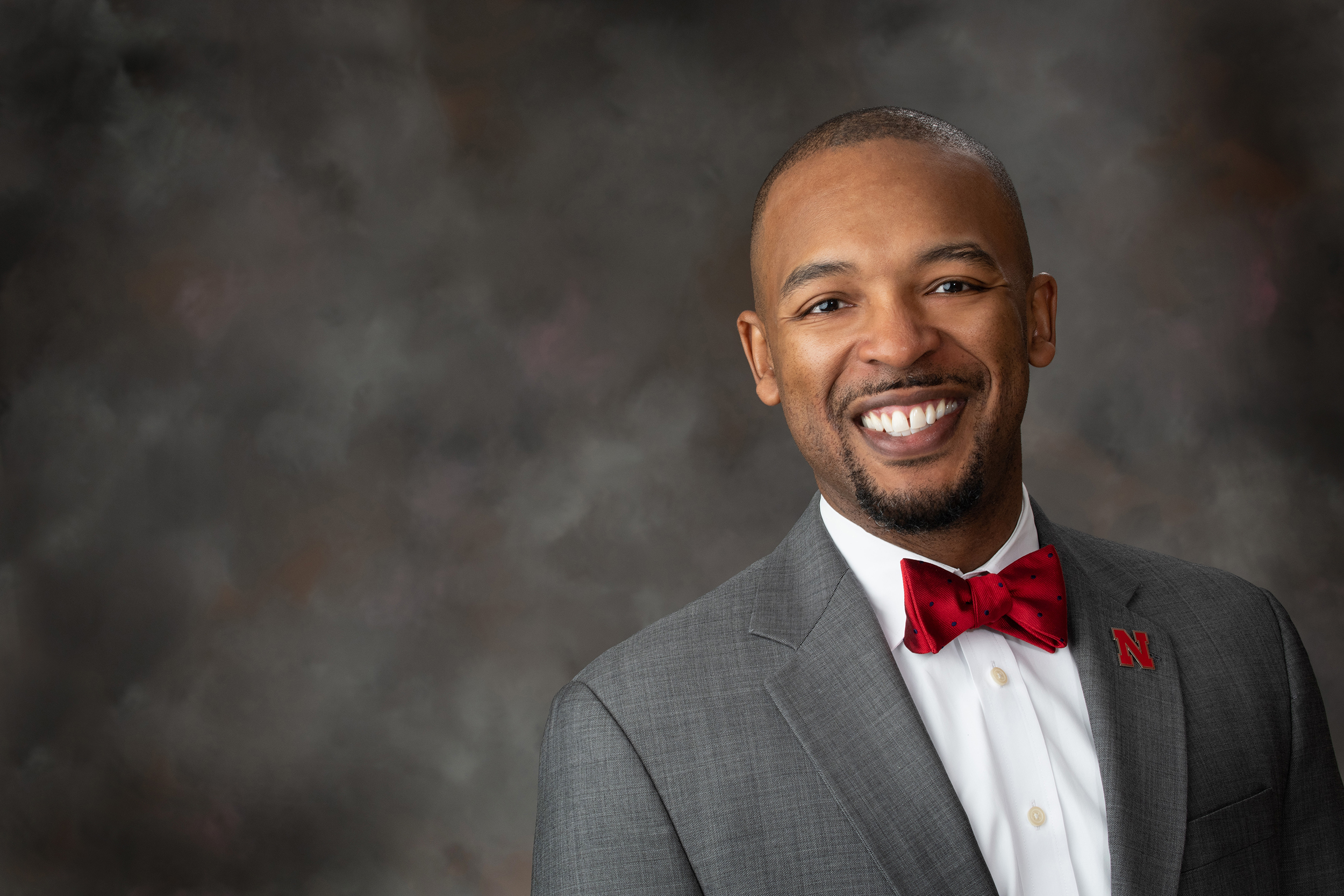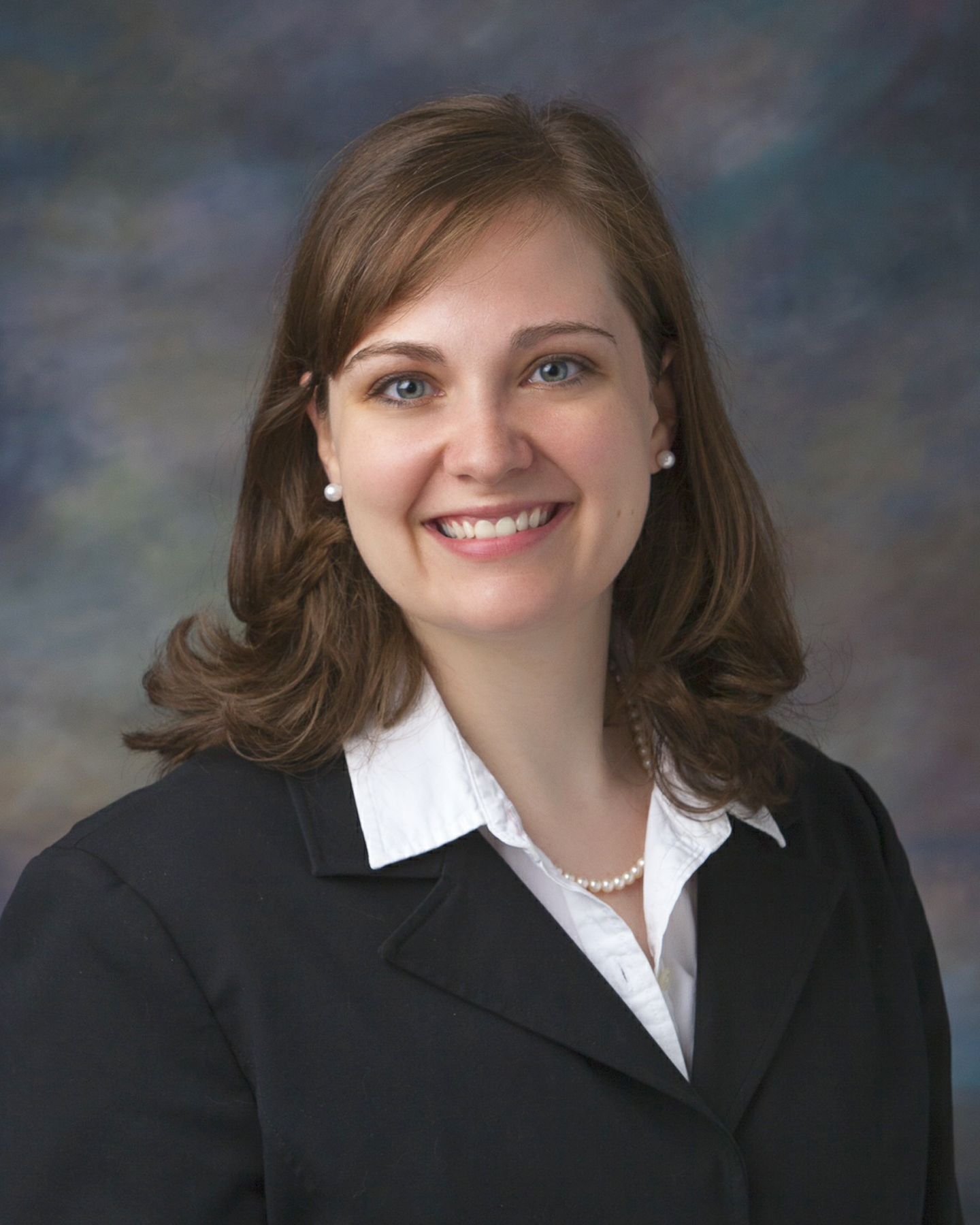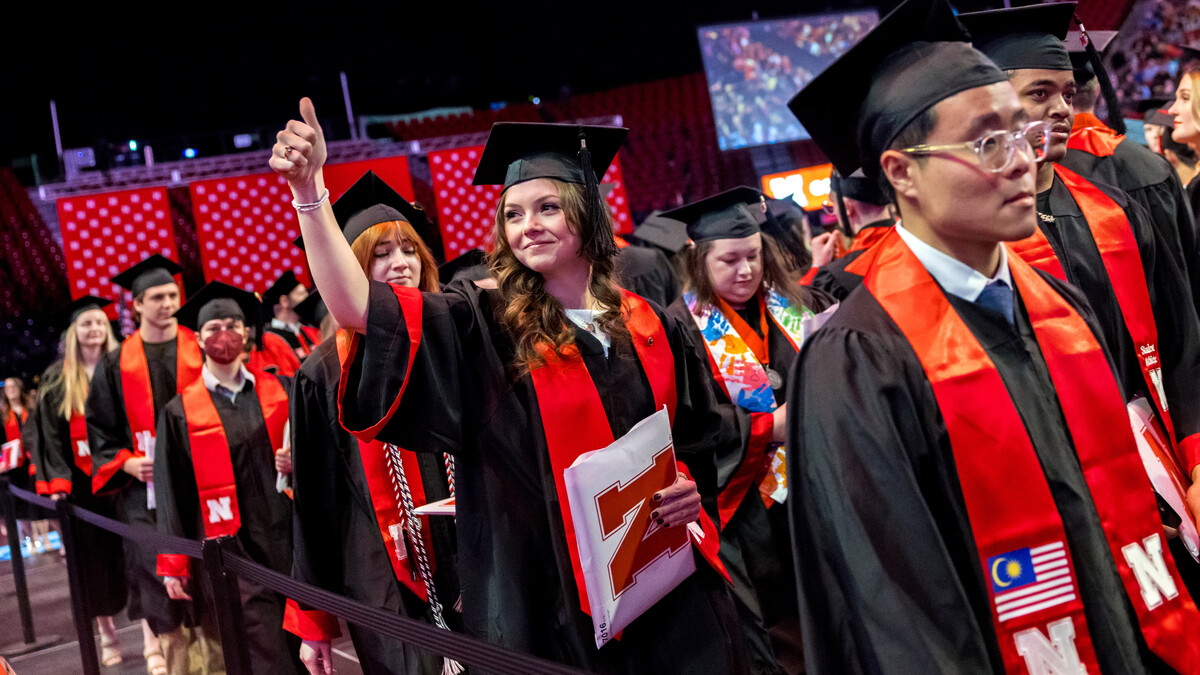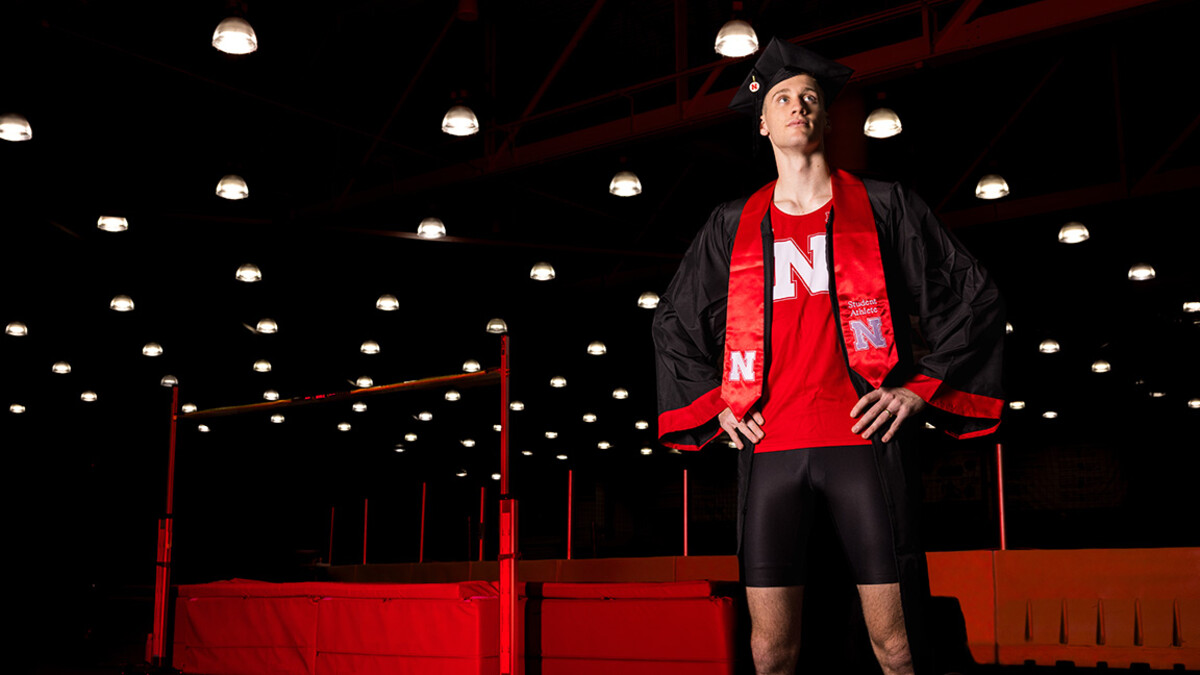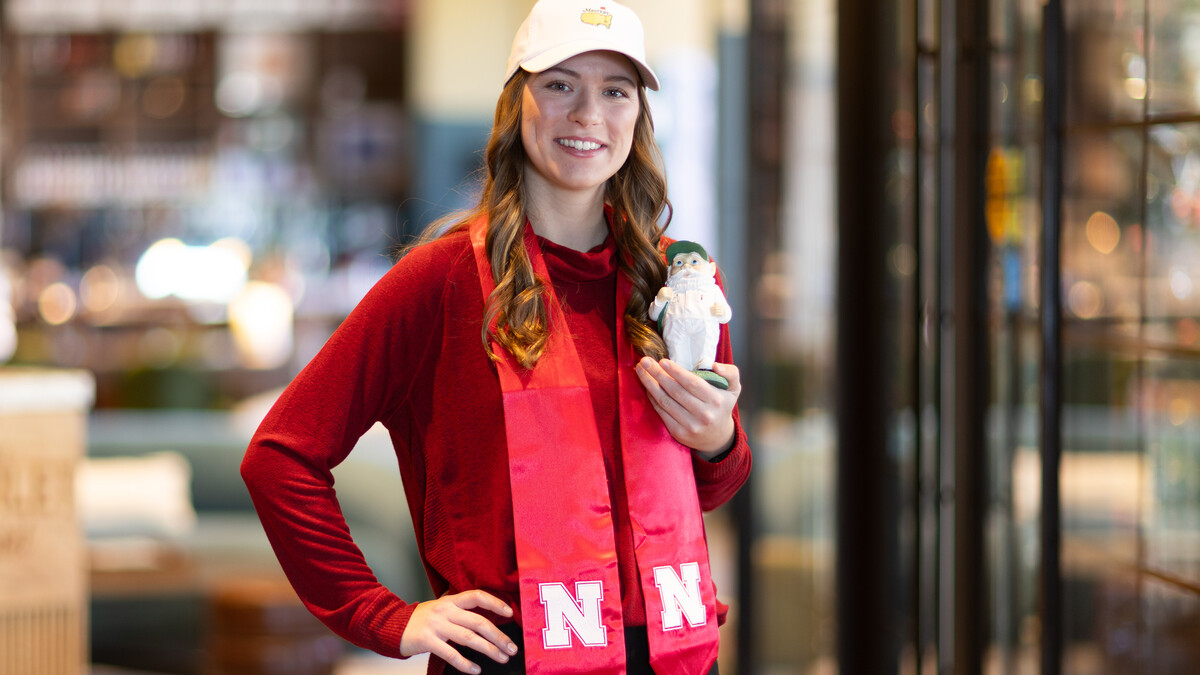
Renowned scientist Jay Keasling encouraged the University of Nebraska–Lincoln’s spring graduates to find and develop their passions, help others pursue their passions, and take big chances.
Full list of graduates | Featured grads | Photos | Program
Keasling, Philomathia Professor of Alternative Energy at the University of California, Berkley, and a Husker alumnus, delivered the undergraduate commencement address, “Live Your Passion,” May 14 at Memorial Stadium.
Keasling recalled taking his first genetics course at the university in 1984, which reinforced his fascination with genetic engineering and led him down the career path he is still on today — engineering microbes to produce therapies to fight diseases such as malaria and producing more environmentally friendly chemicals than those made from petroleum.
“People often ask me what my hobby is, and I somewhat embarrassingly say ‘my job,’” said Keasling, who is also a senior faculty scientist at Lawrence Berkeley National Laboratory and chief executive officer of the Joint BioEnergy Institute. “I know this might sound lame to you, but it’s really true. It’s a very special privilege that I get up every morning and can do my hobby for work.”
Keasling, who is a member of the National Academy of Engineering and the National Academy of Inventors, said he didn’t choose his career because it was easy or would make him a lot of money, but because it fascinates and challenges him and he might be able to “move the needle on making the planet a better place.” He urged the graduates to take a similar approach.
Keasling said everyone can find a passion and pour their spare time into it, even if it’s not one’s work. He encouraged the graduates to pick something that is difficult to master and that makes them happy and proud.
Keasling said he was inspired by thoughtful teachers, professors and mentors. He asked the graduates to try to be a positive inspiration to someone else.
“If you can inspire just one person to be the best person they can be or to see a career path that they did not know about or to be a force for good, that will be a positive multiplier in the world,” he said.

Keasling told the graduates that hardly anything of value is achieved without taking big risks. He emphasized that he has failed far more often than he has succeeded, and that is the case for most of the successful people he knows. He encouraged the graduates to take chances while they are young and have less to lose.
“When you leave here today, start taking risks,” he said. “Don’t be afraid to fail — if you do, you will learn and you will have successes later. And given the audience I am speaking to, many of those big risks will turn into high payoffs for you and society.”
Keasling closed his address by saying that everything he has accomplished in life has been in collaboration with wonderful people — family, mentors, colleagues and students — and that people are the graduates’ greatest resource. He instructed the graduates to treat people as they would want to be treated, share credit with them and try to emulate the best mentors they’ve had at the university.
Keasling also received an honorary Doctor of Science during the undergraduate ceremony.

Terry L. Fairfield, former president and CEO of the University of Nebraska Foundation, received the Nebraska Builder Award for exceptional service to the state and university during the ceremony.
Pinnacle Bank Arena hosted a ceremony for students earning graduate and professional degrees May 13; Memorial Stadium hosted a ceremony for undergraduates May 14; and the Lied Center for Performing Arts hosted a ceremony for law graduates May 14.
Marco Barker, vice chancellor for diversity and inclusion at Nebraska, gave the address at the graduate and professional degree ceremony May 13 at Pinnacle Bank Arena. He shared his journey to becoming a “diversity engineer.”
“I see diversity engineering as applying critical thinking, analysis, rigorous calculations of scenarios, experimentation with trying new solutions to solve one of the world’s greatest challenges of fostering belonging, inclusion, togetherness and community,” he said. “There is no doubt that we are polarized right now and that we are not taking the time to learn from one another, listen to one another and to show love to one another.”
Barker shared four life lessons he has learned: to not to be defined by one moment or anyone else; to be part of the solution; to look beyond one’s bubble and remain curious; and that mattering is one of humanity’s deepest needs.
“One of our largest issues is that we have lost our human connection to understand, empathize and love,” he said. “To head toward better connectivity, we have to be open and ask questions and be inquisitive. Even ask yourself today, graduates: ‘How did I get here? Who’s here or not here with me?’ These can often reveal things about us that we do not realize.”

Barker emphasized that much is expected of the new graduates. He said they are well-positioned to go into the world and do two things — solve problems using their academic superpowers and act in a way that ensures that people and interactions matter.

Sara Howard, policy adviser for First Five Nebraska and a former state senator, spoke to the law graduates.
Chancellor Ronnie Green presided over the commencement exercises, during which 2020 and 2021 graduates were also celebrated. About two dozen returned to cross the stage in front of family and friends.
“To each of our graduates: We are very proud of your accomplishments and thankful for your contributions,” Green said. “You have raised our level of critical thinking and creative activity as a world-leading institution of higher education, adding to the legacy of the people who have earned their advanced degrees from Nebraska.”
The university conferred a record 3,611 degrees during the May commencement ceremonies. The 3,522 graduates are from 58 countries; 45 states, the District of Columbia and Puerto Rico; and more than 250 Nebraska communities.
The May graduating class earned 131 new Juris Doctor degrees, 601 other new graduate and professional degrees and 2,879 new baccalaureate degrees. The university has awarded 310,613 degrees since it was founded in 1869.

